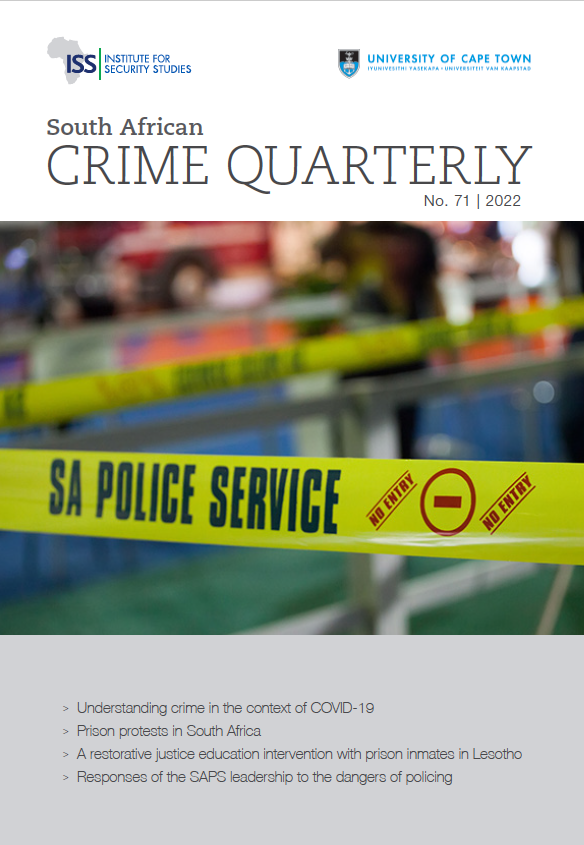Protest injuries: A situational analysis of injurious protests in Gauteng
DOI:
https://doi.org/10.17159/2413-3108/2022/vn71a12891Abstract
In this article, we investigate contextual and situational circumstances of protest events that record injurious outcomes for civilians and examine how these differ from protests which do not record such outcomes. Using the IRIS database, we examine how contextual factors, including protest period, protest location, type of protest, reason for protest, and situational factors, such as damage to property, arrests and police response contribute to civilian injury. Using multiple logistic regression analysis, it was found that: 1) protest-related injuries were more frequent during the late-2000s than the 2010-15 period; 2) protest location was not a significant predictor of protest injury; 3) protests which recorded arrests and damage to property were more likely to report injurious outcomes; and 4) the addition of an aggressive police response was significant in determining protestor injury outcomes. Our findings have implications for public policing strategies, highlighting the role of different modalities of police response in the mitigation or escalation of violence at protest events.
Downloads
Downloads
Published
Issue
Section
License
Copyright (c) 2022 Author and Institute for Security Studies

This work is licensed under a Creative Commons Attribution 4.0 International License.
SACQ is licenced under a creative commons licence (CC BY) that allows others to distribute, remix, tweak, and build upon your work, even commercially, as long a they give appropriate credit, provide a link to the license, and indicate if changes were made. They may do so in any reasonable manner, but not in any way that suggests the licensor endorses you or your use.
Copyright for articles published is vested equally between the author/s, the Institute for Security Studies and the Centre of Criminology (UCT).



.png)